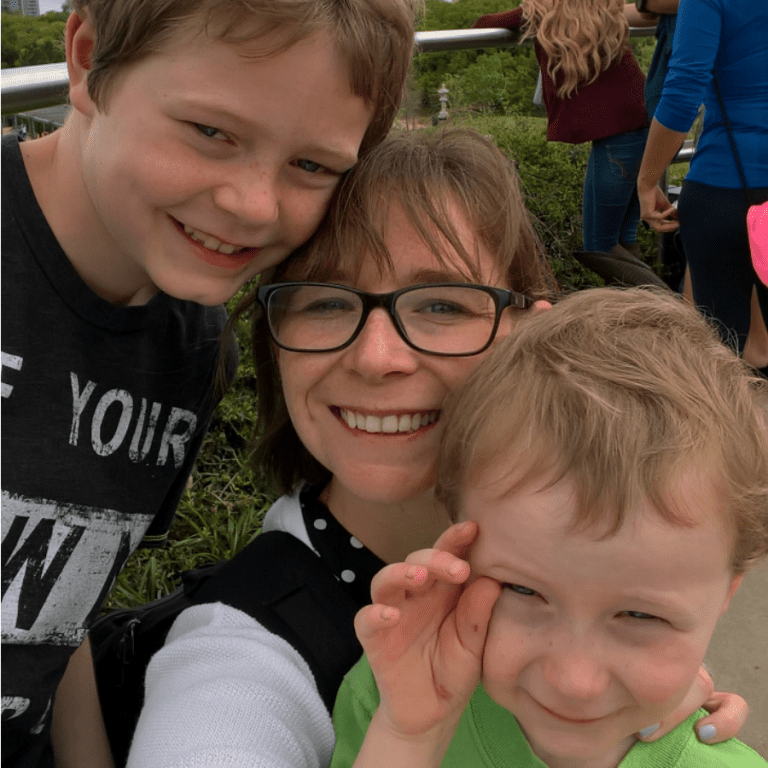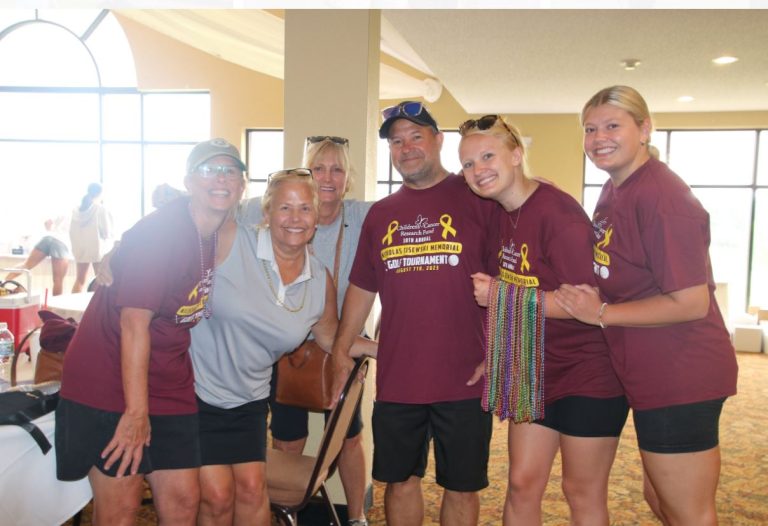The Hard-To-Tread Award is a grant intended to support projects that enable the prevention, early detection and effective treatment of pediatric cancers that remain hard-to-treat. While treatment success has improved for many cancers, survival rates and therapy options have not changed for some cancers, including brain tumors, sarcomas, and acute myeloid leukemia. Each award is $250,000 over a period of 24 months.
Each year, CCRF invites research proposals from around the country for the Hard-to-Treat award, and recipients are selected through a competitive scientific review to ensure the strongest, most impactful work is funded.
Why does this Award Exist?
16,000 children are diagnosed with cancer in the U.S. each year. To the families and public this is a staggering amount. However, the government defines rare as any disease impacting less than 200,000 people, meaning children’s cancer is technically rare. The National Institute of Health (NIH) prioritizes federal funding for diseases that impact much larger populations, leaving children’s cancer heavily underfunded.
With only 4% of federal cancer research funding dedicated to childhood cancers, it’s difficult to move the needle for these hard-to-treat cancers. Every year, promising research on hard-to-treat cancer becomes stalled or even abandoned due to a lack of funding. That‘s why CCRF has created a grant specifically focused on these cancers, as we know that achieving promising results takes a significant investment of time and money.
Who Are the Recipients?
Since the award’s conception in 2020, several talented researchers across the U.S. have been chosen as recipients for the HTT award. Here is a list of recipients, their organizations, and their project titles.
2021
|
Peter Chiarelli, MD, D. Phil |
Therapeutic enhancement of Radiation with Nanoparticles in DIPG |
Children’s Hospital Los Angeles and the University of Southern California |
|
Anthony Faber, PhD |
MYCN drives a druggable SUMOylation program in Neuroblastoma |
Virginia Commonwealth University |
|
Alex Huang, MD, PhD |
Rhabdomyosarcoma-intrinsic STING pathway drives immune response to Cryoablation |
Case Western Reserve University – School of Medicine |
|
Eugenie Kleinerman, MD |
A Novel Dendritic Cell Vaccine Targeting CD70 for Osteosarcoma Lung Metastases |
University of Texas M.D. Anderson Cancer Center |
|
Asha Pillai, MD |
Solid Tumor Immunotherapy with Nano-Targeted Off-The-Shelf Natural Killer T-Cells |
University of Miami |
|
Amit Sabnis, MD |
Biomarker-driven mTOR inhibitor therapy for fusion positive Rhabdomyosarcoma |
University of California, San Francisco |
2020
|
Richard Aplenc, MD, PhD, MSCE |
Proteogenomic Target Discover in Pediatric Acute Myeloid Leukemia |
The Children’s Hospital of Philadelphia |
|
Kathrin Bernt, MD |
Targeting MN1 in Hard-To-Treat Cancer |
The Children’s Hospital of Philadelphia |
|
Allison O’Neill, MD |
An Early Phase Trial of ET140203 T-Cells in Pediatric Relapsed Liver Cancer |
Dana-Farber Cancer Institute |
|
Ross Okimoto, MD |
Defining a precision-based therapy for CIC-DUX4 sarcomas |
The Regents of the University of California, University of California, San Francisco |
|
Linda Resar, MD |
Targeting the HMGA1 Epigenome in MLL1-Rearranged Leukemia |
John Hopkins University |
|
Jessica Pollard, MD |
Ventoclax and Azacitidine for High-Risk Myeloid Malignancies |
Dana-Farber Cancer Institute (DFCI), Boston, MA |
2022
CCRF will be inviting applications for the 2022 Hard-to-Treat awards this summer.
Children’s Cancer Research Fund (CCRF) is a national nonprofit committed to finding safer, more effective therapies for kids battling cancer. Thanks to donors and partners around the country, we have contributed more than $213 million to research, education and awareness, and quality-of-life programs for childhood cancer families. We believe kids deserve safer, less toxic treatments, and we’re committed to funding groundbreaking research and services that enhance healing and care.
Your donation supports Emerging Scientists
By donating to Children’s Cancer Research Fund, you’re giving emerging scientists the support they need to put their great ideas into practice. Learn more about CCRF's commitment to funding researchers early in their careers.




